MercoPress. South Atlantic News Agency
Environment
-
Monday, March 14th 2016 - 11:35 UTC
Falklands experiences steady growth in cruise visitors and leisure tourists

By Joshua Peck - The number of cruise passengers visiting the Falkland Islands is projected to increase for the third season in a row. Each tourist season, lasting from October to March, sees numerous cruise vessels arrive in the Falklands, with passengers typically disembarking for a single day onshore. The last cruise vessel for the current season is scheduled to arrive on 31st March.
-
Wednesday, March 9th 2016 - 06:47 UTC
Falklands celebrates “Tussac Tuesday”, one of the most valuable native plants
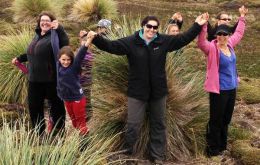
In rare coincidence with the International Women´s Day, the Falkland Islands celebrated ”Tussac Tuesday'', the Poa flabellata grass, one of the most valuable native plants to farmers and wildlife in the Islands. It is palatable all year round and can provide good supplementary forage for cattle, horses and sheep.
-
Tuesday, March 8th 2016 - 12:38 UTC
Algae bloom in southern Chile causing massive losses in the salmon farms
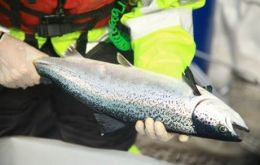
A group of salmon farms operating in the south of Chile have reported the mass death of millions of salmon. The deaths are attributed to an outbreak of harmful algae, set to generate millions in financial losses and see supermarket prices soar across Chile.
-
Wednesday, March 2nd 2016 - 07:45 UTC
Brazil begins reconstruction of Antarctica base “Comandante Ferraz” lost to fire in 2012
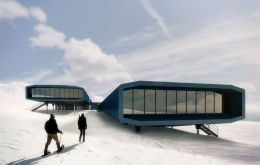
A symbolic ceremony launching the reconstruction of Brazil's “Comandante Ferraz” Antarctic base was held at the Chilean Antarctic Institute in Punta Arenas with the attendance of top officials from both countries. The Brazilian base, located in King George Island was a total loss back in February 2012 caused by a fire that started at the power room.
-
Friday, February 26th 2016 - 06:38 UTC
Falklands' Gentoo penguins practice “kleptoparasitism”, shows study by South African scientist
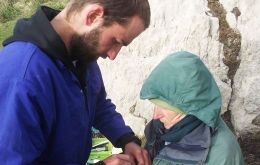
Penguins in addition to being stealthy swimmers and keen hunters, unique video footage has revealed a dark side: a video camera attached to the back of a gentoo penguin swimming off the Falkland Islands captures a violent underwater scuffle where penguins steal food right out of each other’s beaks.
-
Friday, February 26th 2016 - 06:19 UTC
Greenpeace celebrates and supports cancellation of Icelandic fin whale hunt
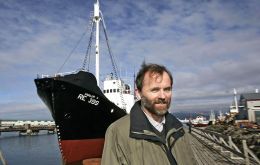
Greenpeace celebrates the 'incredible' news that Iceland has cancelled the fin whale hunt for the current season and underlines that nowadays “there is simply no place for commercial whaling” plus the fact that Iceland and Japan have stockpiles of unwanted whale meat.
-
Wednesday, February 24th 2016 - 07:50 UTC
FAO summit in Morocco addresses fish trade traceability and eliminating IUU fishing

High-level delegations of fisheries ministries from more than 50 countries are gathering in Agadir, Morocco for a summit with industry players to discuss emerging governance needs in a sector that provides the world with 17% of its animal protein and developing countries with more export revenue than meat, tobacco, rice and sugar combined.
-
Wednesday, February 24th 2016 - 06:05 UTC
Homicide charges for seven top officials linked to Brazil's worst mining accident

Brazilian authorities have charged the president of mining company Samarco and six others with homicide for the mining disaster that killed 19 people last November. Police in Minas Gerais State have asked for Ricardo Vescovi, along with five other Samarco executives and one contractor to be arrested.
-
Wednesday, February 24th 2016 - 05:53 UTC
Huge fireball plunged through the atmosphere into the Atlantic, off Brazil coast
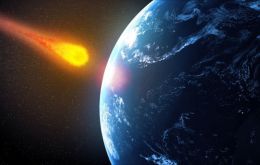
The biggest fireball since the Chelyabinsk explosion has plunged through the atmosphere over the Atlantic Ocean. The event, which has only just come to light, occurred off the coast of Brazil at 13:55 GMT on 6 February.
-
Tuesday, February 23rd 2016 - 06:43 UTC
Argentina celebrates 112th anniversary of flag flying and presence in Antarctica
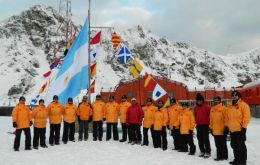
Argentina Antarctica Day was celebrated on Monday 22 February, recalling the 112th anniversary of the first time the country's flag was flown at the Meteorological and Magnetic Observatory in the Laure Island, South Orkneys in 1904.
